How much black spot should you tolerate?
vallkyrie1979
7 years ago
Featured Answer
Sort by:Oldest
Comments (80)
vallkyrie1979
7 years agocecily
7 years agoRelated Discussions
How do you deal with Black-spotted roses?
Comments (23)Some years ago, our Jeri and her great husband, Clay, spoke at a Huntington Old Rose Symposium about ridding your garden from diseases. As Jeri stated, "You CAN rid your garden from diseases!", all eyes were front and center, many on the edges of their seats. Clay held a shovel over his head and shook it like a weapon and the crowd exploded! Wonderful experience and funny as they come! They're right, though. Selection of the best rose for the best place, often difficult and requiring a lot of research, exploration and education, is the prime way to eliminate disease issues. Nothing will ever be perfect, but if avoiding the costs, dangers and work of having to use chemicals is important enough to you, it's the ONLY way other than to grow anything else which isn't affected by the plagues. Kim...See MoreHow much shade can tiger lilies tolerate?
Comments (2)Hi Lisa! I have Tiger Lilies (that my neighbor also gave me a few years ago) along the east side of the house. The area probably gets even less sun than yours because of nearby shrubs. They seem to do fine out there. I don't think these lilies are very fussy. Have you ever noticed those little black 'beads' on the leaf right by the stem? Those are miniature bulbs. If you plant those in the ground they will sprout. I have a few popping up around the base of the parent plant. Very cool! PS. I have also read that Tiger Lilies should not be planted next to other lilies becasue they carry a virus that can mutate other lilies. I planted mine in an isolated spot. CMK...See MoreHow tolerant should I be of flaws in cabinet?
Comments (9)Hi. I spent over $80K on my Kountry Kraft kitchen cabinets and I sent back my fridge panels b/c they were not the way they were designed in the sketches. It took 4 weeks to get the replacements. That said, some end panels left a horrible seam and the ends were a completely different color. A tech from KK came to my house and spent 3 hours touching up things here and there, including making exposed hinges that were not level, level, and touching up a small gouge my GC did to a face frame above my wall oven. Am I 100% satisfied? Not really. But, I'll have to live with a bunch of imperfections and have learned to say "Oh Well." and consider myself lucky to have over all a very beautiful kitchen. Sort of like the first ding on a new car, it's almost a relief when it happens. I'll never be doing this again, so it bums me a tiny bit that it's not "perfect" especially since it will become less perfect down the road with the anticipated cracks and seams that will show since my cabs are painted white. BUT, I doubt anyone else coming into my kitchen will notice the flaws. AND, I bet if I moved into my house with the kitchen exactly as it will be when it is finished, I would love it to death and wouldn't notice a single flaw. Hope you end up happy and love your new kitchen!...See MoreRose bush with "black spot", should I cut it to ground?
Comments (10)My advice is for you to follow the directions given by Cecily, Jacqueline, and Seil. The bush is in a weakened state, no further cutting at this time please, even the blackened stem. You can remove it later after the bush recovers. Begin a regular spray program for the control of black spot now, and continue all growing season long. Spray all the leafless stems, even the black one ASAP. The bush should start fo leaf out very soon. Continue spraying every 10 days to 2 weeks there after, if using the Bayer fungicide. The Bayer fungicide works extremely well for me. I highly recommend it. I have not found the organic controls that I have tried effective, but I have not tried them all. Time your spraying carefully. Foliage can be damaged easily if spray is misapplied. Then the good you are doing is cancelled out. Never spray a thirsty bush, in the heat of the day, or when the temp. is 80 degrees F., or higher at spraying time or rises above 80 for a period of one hour after spraying. If you spray when the temp. is 78, and it gets up to 85 in just a half hour's time, that's no good. Spraying in the early morning or during dusk is always best. I could not grow roses to any degree of success in my garden where the black spot pressure is intense and relentless from spring to fall, without a regular spray program....See Morevallkyrie1979
7 years agolast modified: 7 years agojessjennings0 zone 10b
7 years agojessjennings0 zone 10b
7 years agozack_lau z6 CT ARS Consulting Rosarian
7 years agolast modified: 7 years agoseil zone 6b MI
7 years agochris2486
7 years agozack_lau z6 CT ARS Consulting Rosarian
7 years agochris2486
7 years agozack_lau z6 CT ARS Consulting Rosarian
7 years agolast modified: 7 years agozack_lau z6 CT ARS Consulting Rosarian
7 years agolast modified: 7 years agoUser
7 years agolast modified: 7 years agoUser
7 years agolast modified: 7 years agoUser
7 years agolast modified: 7 years agovallkyrie1979
7 years agoUser
7 years agolast modified: 7 years agoUser
7 years agolast modified: 7 years agovallkyrie1979
7 years agojim1961 / Central Pennsylvania / Zone 6
7 years agovallkyrie1979 thanked jim1961 / Central Pennsylvania / Zone 6jessjennings0 zone 10b
7 years agovallkyrie1979
7 years agolast modified: 7 years agojim1961 / Central Pennsylvania / Zone 6
7 years agolast modified: 7 years agojessjennings0 zone 10b
7 years agojjpeace (zone 5b Canada)
7 years agoBuford_NE_GA_7A
7 years agovallkyrie1979
7 years agoHolly Webster(7bNC)
7 years agoBuford_NE_GA_7A
7 years agodiane_nj 6b/7a
7 years agonippstress - zone 5 Nebraska
7 years agoHolly Webster(7bNC)
7 years agomad_gallica (z5 Eastern NY)
7 years agoHolly Webster(7bNC)
7 years agovallkyrie1979
7 years agolast modified: 7 years agobarbarag_happy
7 years agovallkyrie1979
7 years agolast modified: 7 years agoratdogheads z5b NH
7 years agovallkyrie1979
7 years agocecily
7 years agozack_lau z6 CT ARS Consulting Rosarian
7 years agoUser
7 years agotoolbelt68
7 years agovallkyrie1979
7 years ago
Related Stories
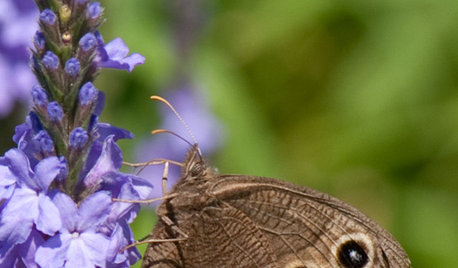
GARDENING GUIDESGreat Design Plant: Verbena Stricta Tolerates Tough Spots
With its subtle beauty and long-lasting flowers, this pollinator pleaser is a boon to wilder areas
Full Story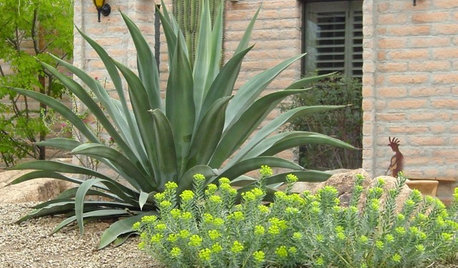
GARDENING GUIDESHow to Spot a Drought-Tolerant Plant
Label? Who needs a label? Learn the characteristics of plants that can thrive in hot, dry conditions to help you pick the right ones
Full Story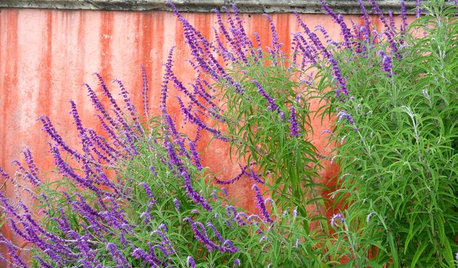
GARDENING GUIDES10 Plants for Colorful Fall Blooms in the Drought-Tolerant Garden
Want fall color but not a big water bill? Consider these not-too-thirsty fall bloomers
Full Story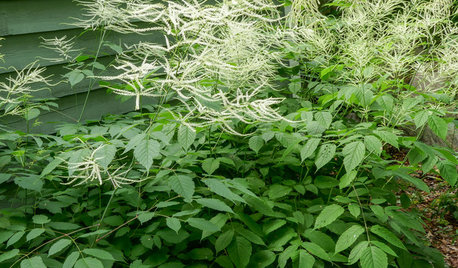
FLOWERS AND PLANTSAruncus Dioicus Is a Stately Plant for Shady, Moist Garden Spots
Plant goat’s beard in perennial and woodland gardens. Its large white spring blooms attract bees, beetles and butterflies
Full Story
LANDSCAPE DESIGNHow and What to Plant in Dry, Sunny Spots
Save water and improve your site’s look with these design tips and help from a pro
Full Story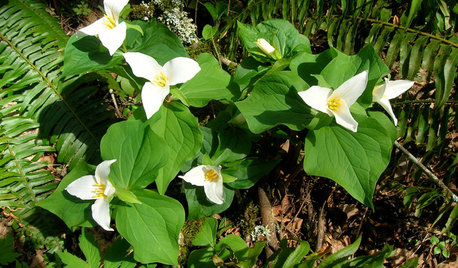
GARDENING GUIDES8 Native Flowers to Brighten Shady Garden Spots
These self-spreading plants from around the country will create a low-maintenance splash from spring to fall
Full Story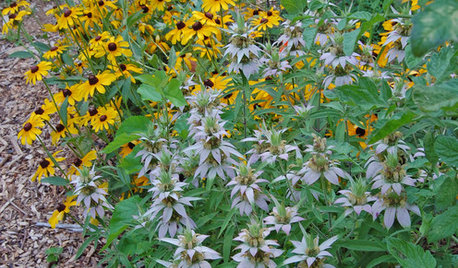
GARDENING GUIDESGreat Design Plant: Spotted Beebalm (Monarda punctata)
Looking for unusual, long-lasting blooms, low maintenance and deer resistance? Try this self-sowing perennial
Full Story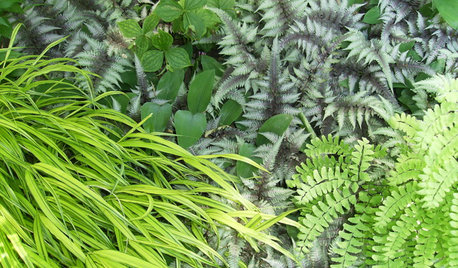
GARDENING GUIDES6 Fantastic Ferns to Enliven Shady Garden Spots
For long-term interest with little upkeep in challenging conditions, ferns might just be your garden's new best friend
Full Story
GARDENING GUIDES10 Drought-Tolerant Shrubs That Thrive in Full Sun and Reflected Heat
Got a hot spot in your garden where plants often die? Try these tough shrubs that add beauty while shrugging off the heat
Full Story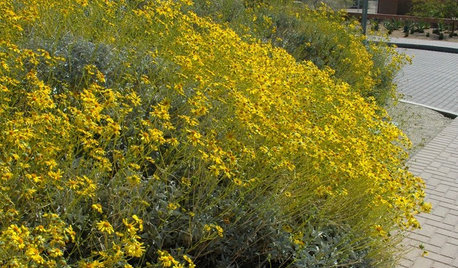
GARDENING GUIDESGreat Design Plant: Brittlebush Brightens Rocky, Dry Spots
Masses of cheerful golden flowers belie the tough nature of this highly drought-tolerant shrub
Full Story





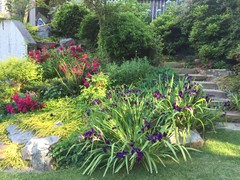

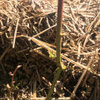



chris2486